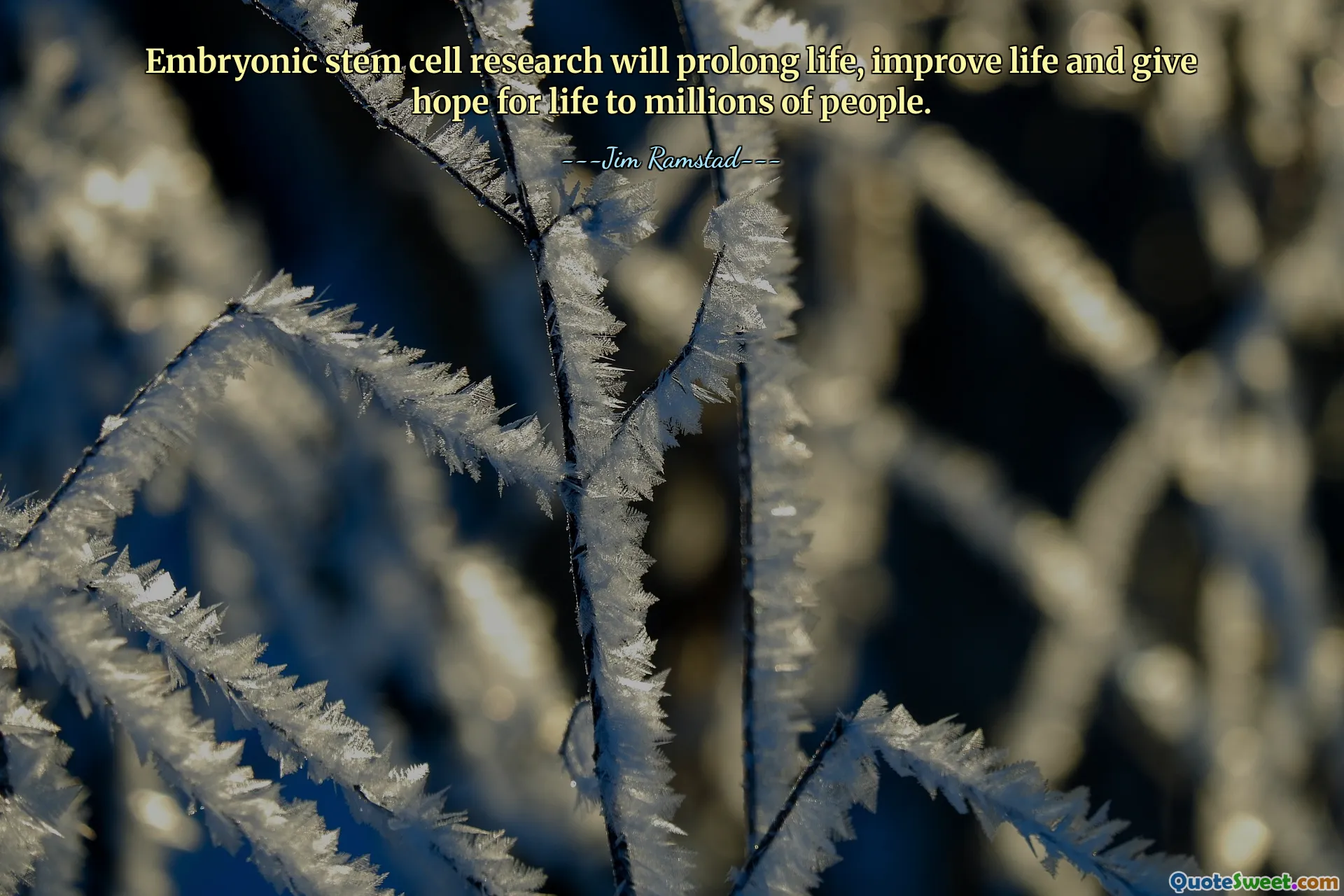
Embryonic stem cell research will prolong life, improve life and give hope for life to millions of people.
This quote underscores the transformative potential of embryonic stem cell research in the realm of medicine and human health. Medical advancements have historically been driven by scientific exploration, and stem cell research stands at the forefront of regenerative medicine. The promise of this field lies not only in extending lifespan but also in enhancing the quality of life for individuals suffering from conditions that currently lack effective treatments. For many, diseases such as Parkinson’s, Alzheimer’s, spinal cord injuries, and certain degenerative diseases could become more manageable or even curable through breakthroughs enabled by embryonic stem cell research. The hope it instills is multidimensional — it offers hope for healing, for restoring functionality, and for alleviating suffering. However, this progress also raises ethical questions regarding the use of embryonic life in research, challenging us to balance scientific potential with moral considerations. Reflecting on this, it’s clear that the pursuit of understanding and utilizing stem cells embodies both a profound opportunity and a profound responsibility. By advancing our knowledge and developing innovative therapies, we can profoundly impact millions of lives across the globe. The pursuit of such research is emblematic of human ingenuity and compassion, illustrating our collective desire to alleviate suffering and enhance well-being. Moving forward, fostering ethical guidelines alongside scientific progress will be essential in realizing the full potential of embryonic stem cell research responsibly and ethically.











